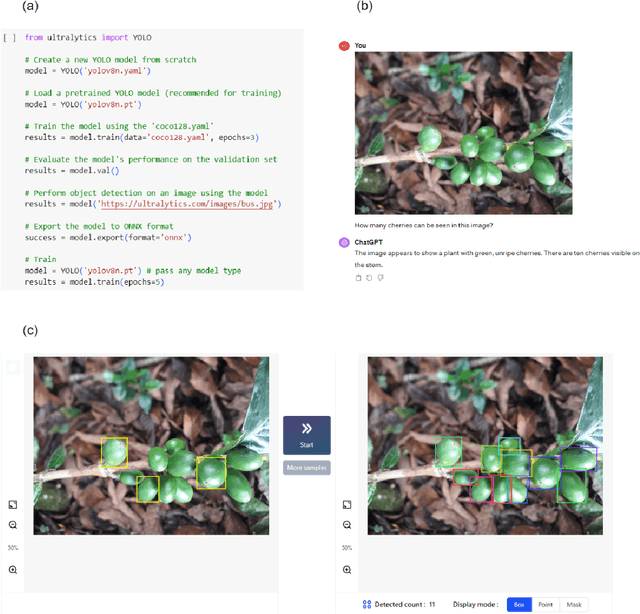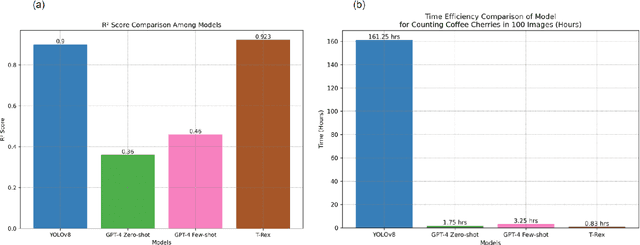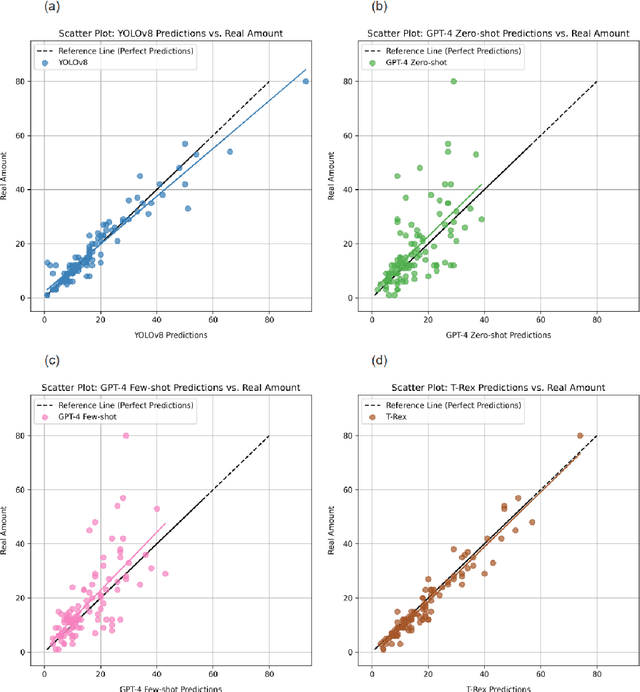Masahiro Ryo
Agentic Explainable Artificial Intelligence (Agentic XAI) Approach To Explore Better Explanation
Dec 24, 2025Abstract:Explainable artificial intelligence (XAI) enables data-driven understanding of factor associations with response variables, yet communicating XAI outputs to laypersons remains challenging, hindering trust in AI-based predictions. Large language models (LLMs) have emerged as promising tools for translating technical explanations into accessible narratives, yet the integration of agentic AI, where LLMs operate as autonomous agents through iterative refinement, with XAI remains unexplored. This study proposes an agentic XAI framework combining SHAP-based explainability with multimodal LLM-driven iterative refinement to generate progressively enhanced explanations. As a use case, we tested this framework as an agricultural recommendation system using rice yield data from 26 fields in Japan. The Agentic XAI initially provided a SHAP result and explored how to improve the explanation through additional analysis iteratively across 11 refinement rounds (Rounds 0-10). Explanations were evaluated by human experts (crop scientists) (n=12) and LLMs (n=14) against seven metrics: Specificity, Clarity, Conciseness, Practicality, Contextual Relevance, Cost Consideration, and Crop Science Credibility. Both evaluator groups confirmed that the framework successfully enhanced recommendation quality with an average score increase of 30-33% from Round 0, peaking at Rounds 3-4. However, excessive refinement showed a substantial drop in recommendation quality, indicating a bias-variance trade-off where early rounds lacked explanation depth (bias) while excessive iteration introduced verbosity and ungrounded abstraction (variance), as revealed by metric-specific analysis. These findings suggest that strategic early stopping (regularization) is needed for optimizing practical utility, challenging assumptions about monotonic improvement and providing evidence-based design principles for agentic XAI systems.
From Images to Insights: Explainable Biodiversity Monitoring with Plain Language Habitat Explanations
Jun 12, 2025Abstract:Explaining why the species lives at a particular location is important for understanding ecological systems and conserving biodiversity. However, existing ecological workflows are fragmented and often inaccessible to non-specialists. We propose an end-to-end visual-to-causal framework that transforms a species image into interpretable causal insights about its habitat preference. The system integrates species recognition, global occurrence retrieval, pseudo-absence sampling, and climate data extraction. We then discover causal structures among environmental features and estimate their influence on species occurrence using modern causal inference methods. Finally, we generate statistically grounded, human-readable causal explanations from structured templates and large language models. We demonstrate the framework on a bee and a flower species and report early results as part of an ongoing project, showing the potential of the multimodal AI assistant backed up by a recommended ecological modeling practice for describing species habitat in human-understandable language.
AgriBench: A Hierarchical Agriculture Benchmark for Multimodal Large Language Models
Nov 30, 2024Abstract:We introduce AgriBench, the first agriculture benchmark designed to evaluate MultiModal Large Language Models (MM-LLMs) for agriculture applications. To further address the agriculture knowledge-based dataset limitation problem, we propose MM-LUCAS, a multimodal agriculture dataset, that includes 1,784 landscape images, segmentation masks, depth maps, and detailed annotations (geographical location, country, date, land cover and land use taxonomic details, quality scores, aesthetic scores, etc), based on the Land Use/Cover Area Frame Survey (LUCAS) dataset, which contains comparable statistics on land use and land cover for the European Union (EU) territory. This work presents a groundbreaking perspective in advancing agriculture MM-LLMs and is still in progress, offering valuable insights for future developments and innovations in specific expert knowledge-based MM-LLMs.
ChatGPT and general-purpose AI count fruits in pictures surprisingly well
Apr 12, 2024


Abstract:Object counting is a popular task in deep learning applications in various domains, including agriculture. A conventional deep learning approach requires a large amount of training data, often a logistic problem in a real-world application. To address this issue, we examined how well ChatGPT (GPT4V) and a general-purpose AI (foundation model for object counting, T-Rex) can count the number of fruit bodies (coffee cherries) in 100 images. The foundation model with few-shot learning outperformed the trained YOLOv8 model (R2 = 0.923 and 0.900, respectively). ChatGPT also showed some interesting potential, especially when few-shot learning with human feedback was applied (R2 = 0.360 and 0.460, respectively). Moreover, we examined the time required for implementation as a practical question. Obtaining the results with the foundation model and ChatGPT were much shorter than the YOLOv8 model (0.83 hrs, 1.75 hrs, and 161 hrs). We interpret these results as two surprises for deep learning users in applied domains: a foundation model with few-shot domain-specific learning can drastically save time and effort compared to the conventional approach, and ChatGPT can reveal a relatively good performance. Both approaches do not need coding skills, which can foster AI education and dissemination.
 Add to Chrome
Add to Chrome Add to Firefox
Add to Firefox Add to Edge
Add to Edge